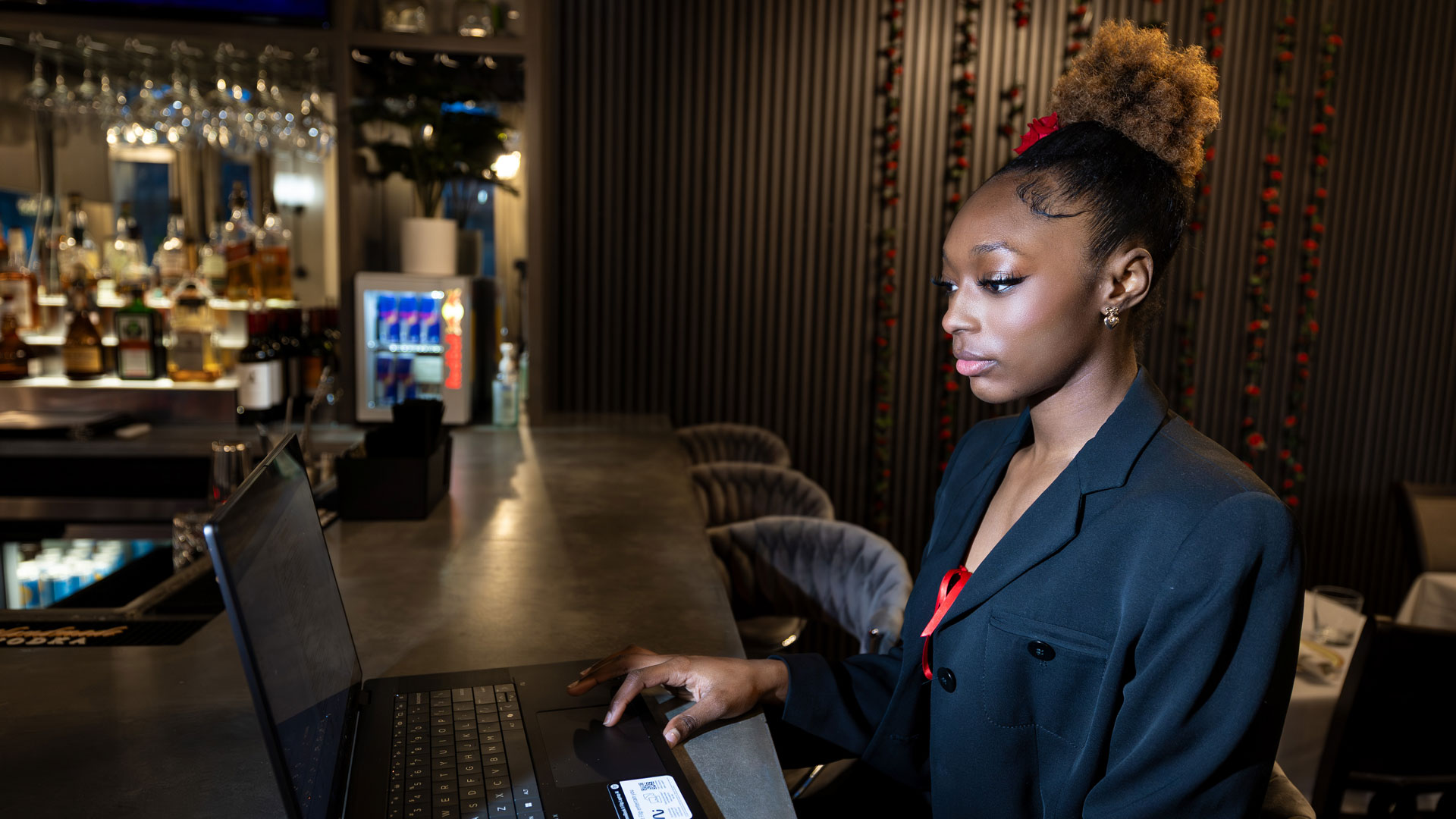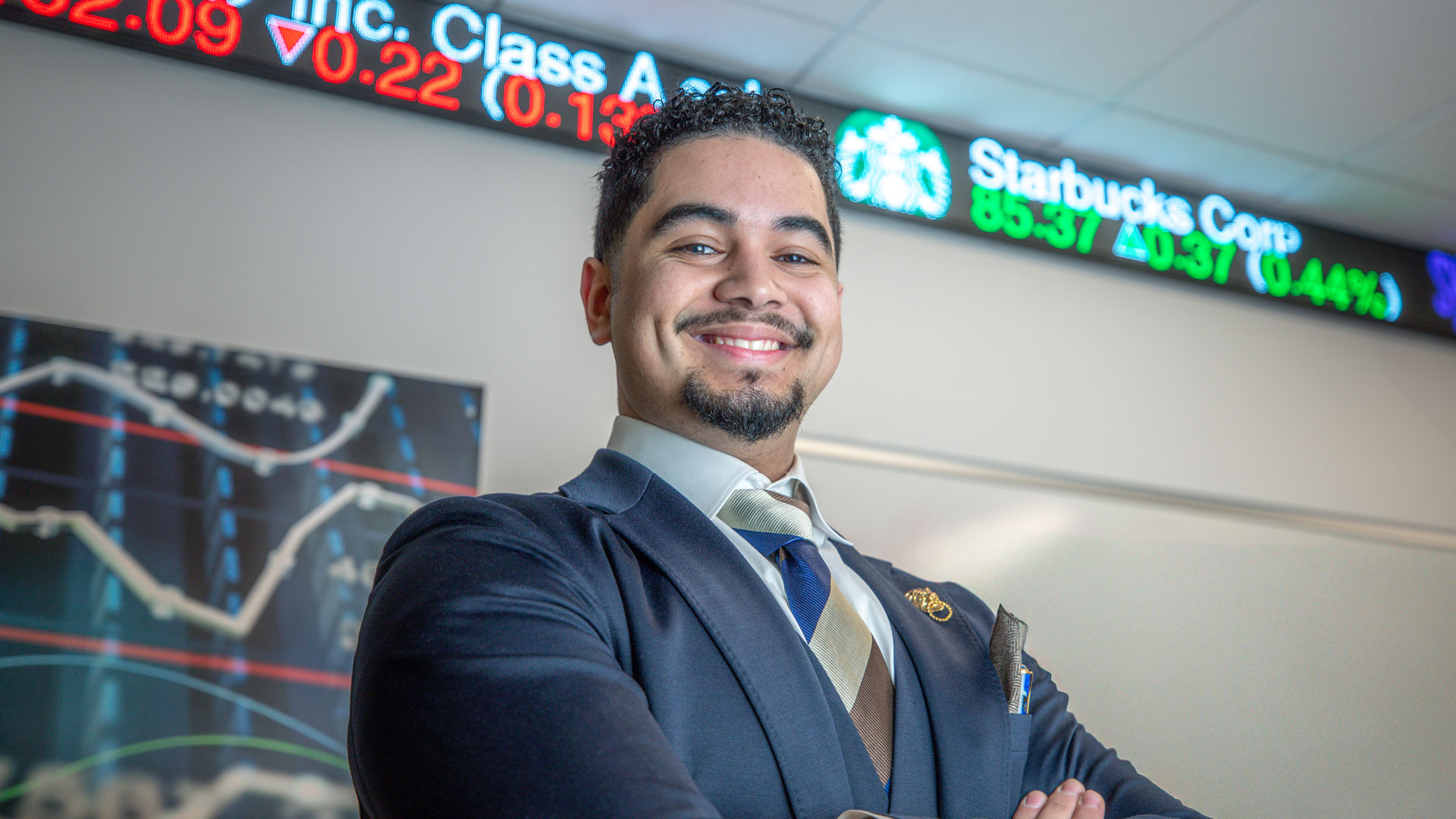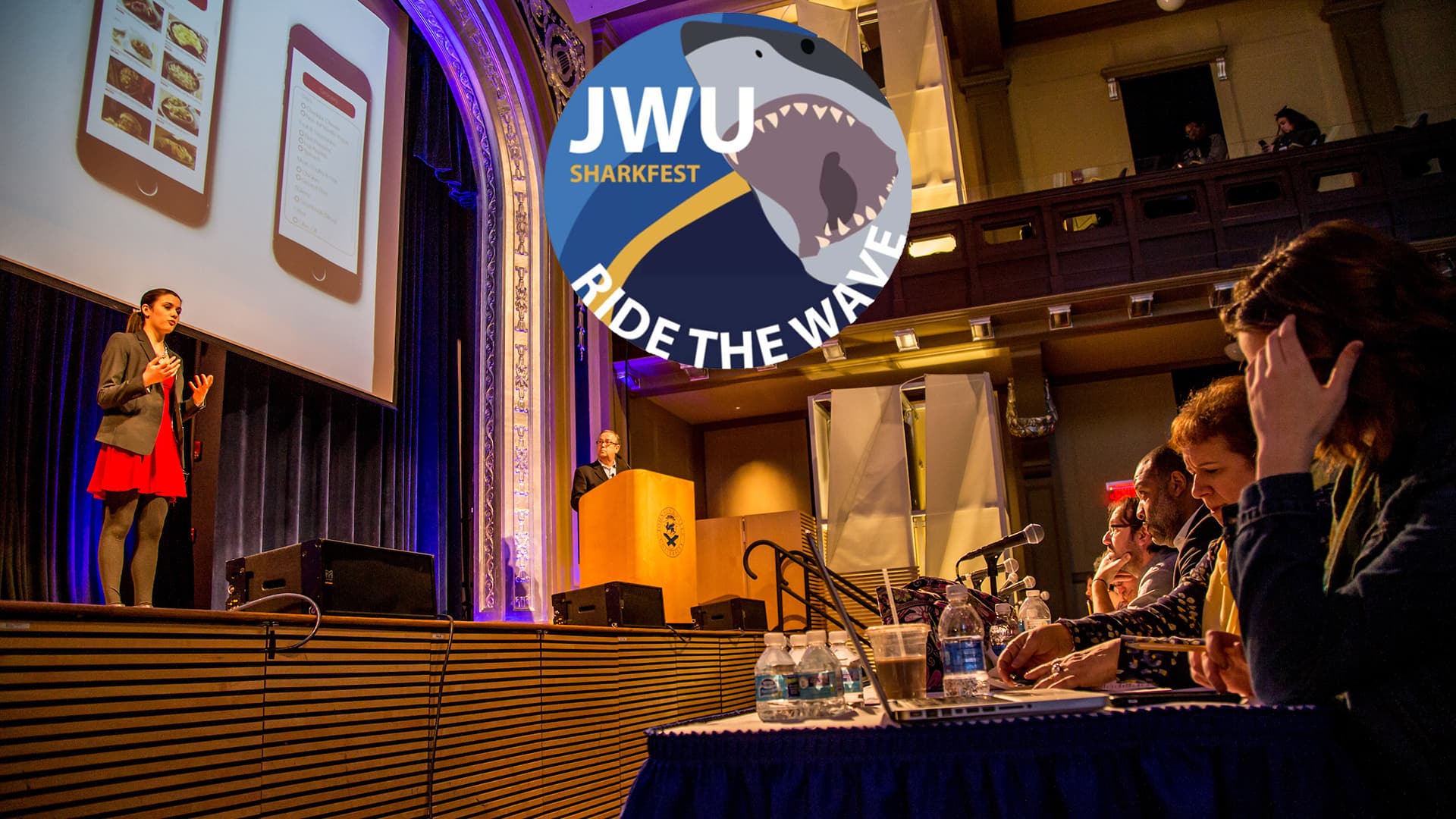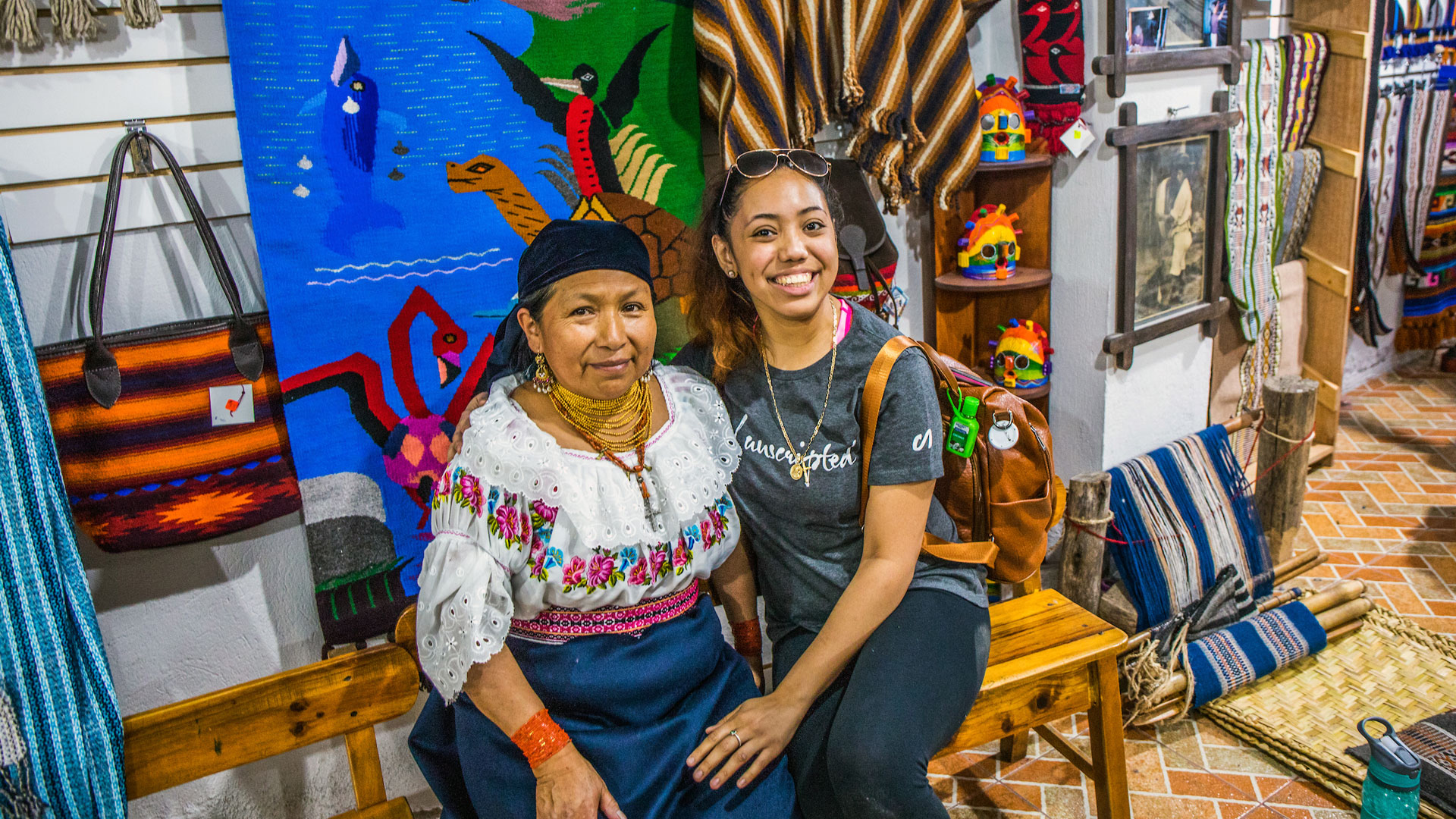The Hotel Room of the Future: A Roundtable Discussion with Hilton
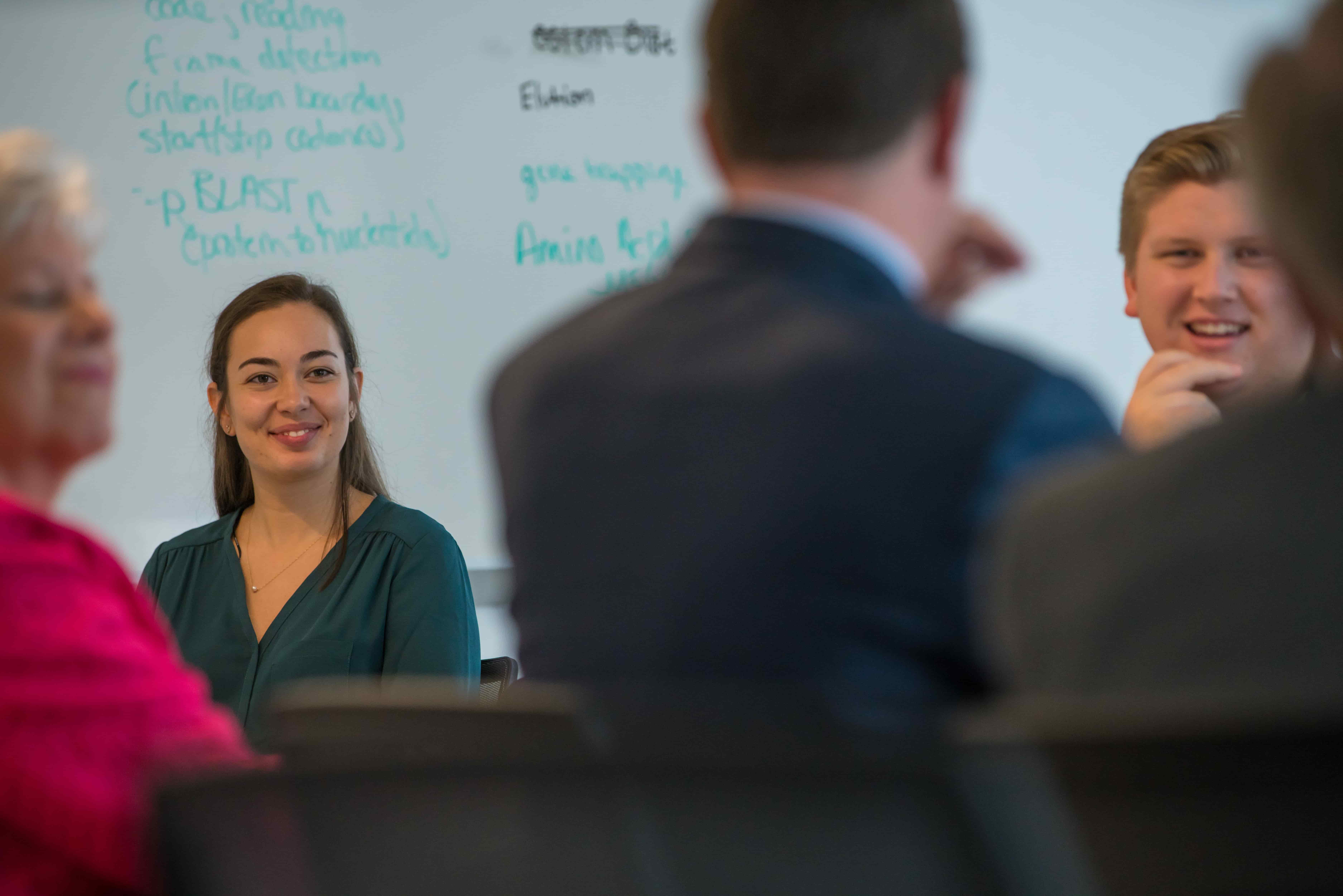
Imagine walking into a hotel room that’s set at the exact air temperature you like. With art on the walls from your favorite artist — or maybe photos of your family. And when your alarm goes off in the morning, the drapes open, your favorite music comes on and the shower starts automatically at the temperature you prefer.
This isn’t some sci-fi futuristic dream — many of these features are either happening now or will happen soon, according to executives from Hilton Worldwide. At a roundtable discussion during Hilton Day, an annual event at JWU, Hilton executives sat down with faculty and students from the College of Hospitality Management and the College of Engineering & Design to talk about how technology is changing the hospitality industry.
The innovations that Hilton is making “came out of defining the guest journey and finding along that journey those points of frustration and opportunity,” says Jonathan Wilson ’91, vice president, customer experience and innovation, food and beverage and wellness at Hilton. “And then figuring out how we would scale that in a way that differentiates us from the competition. So we created a strategy that basically said, ‘if we can give guests individual, personal access to their room, and tailor that room personally to their needs, that would be a point of differentiation.’”
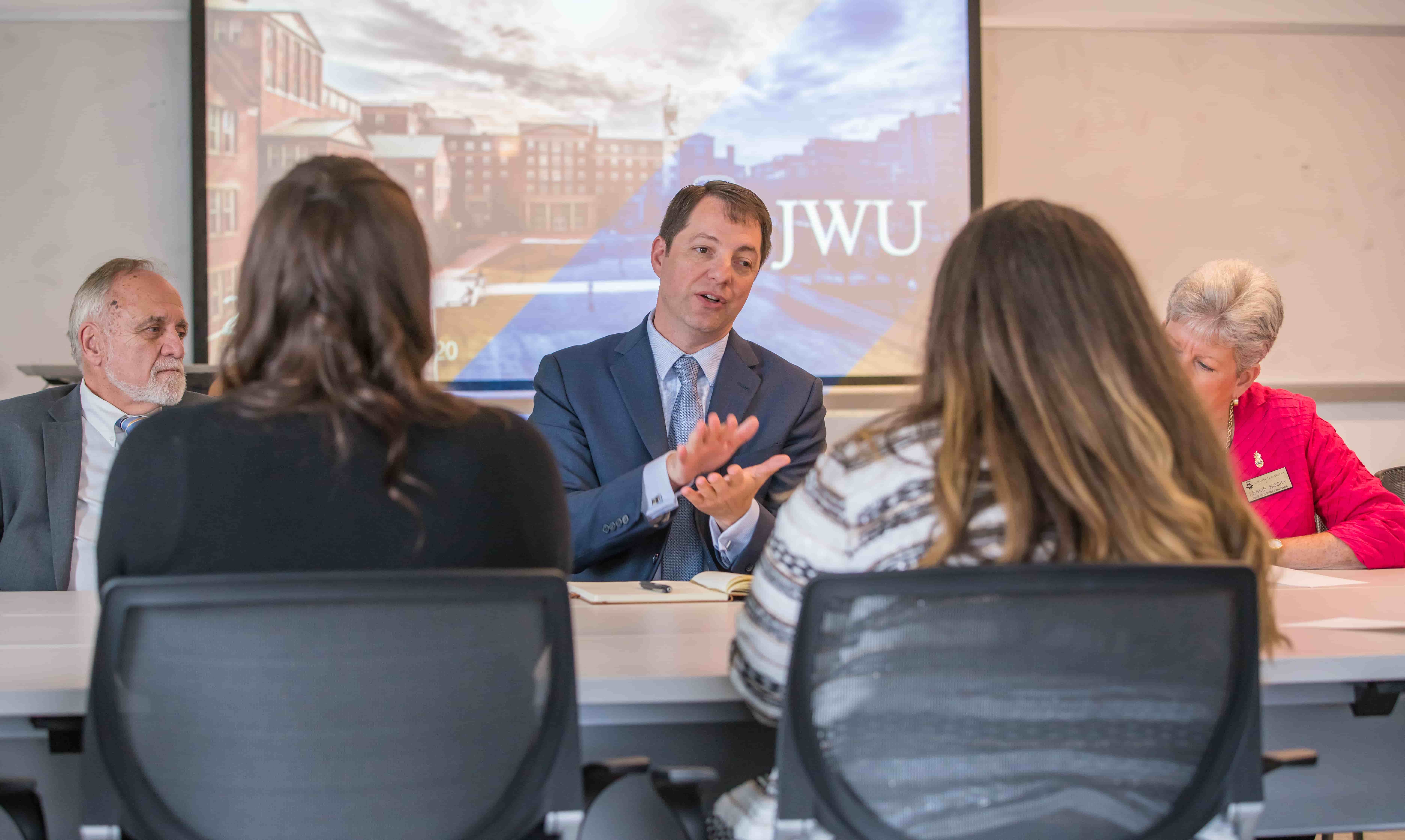
Julia Kuska ’14, digital key implementation coordinator at Hilton, works on the team that developed the digital key. It opens the hotel room if guests have the Hilton Honors app on their smartphone and are within five feet of their door. “It works through Bluetooth and a proprietary interface that we set up on the property,” she says.
The ‘connected room,’ currently installed in four test Hilton properties, goes way beyond the digital key. It’s more like a smart room, Kuska explains. “It’ll know what temperature you like to keep your room at. It has the ability to draw blinds automatically and knows exactly when you want that to happen. It’ll know what you want to watch on TV, and similar things that will make you feel like you’re not in a hotel room – you’re in a place that feels like home.”
"For road warriors who are on the road week after week, it’s all about those comforts of home."
Guests can control the connected room through the same Hilton Honors app that opens their door digitally. “When you set your preferences in the app, you can set things like, ‘I like my room 68 degrees," Wilson says. "My favorite band is Counting Crows. I want access to my own streaming content.’”
Trying to access streaming content has been a pain point for many who travel, he says. “Currently, if you go, for example, to some of our competitors, you can cast your Netflix content to the screen. But it’s through Comcast and you have to log in, and no one knows their Netflix login, and it’s clunky, and by the time you’ve done that, you’ve typically lost interest.”
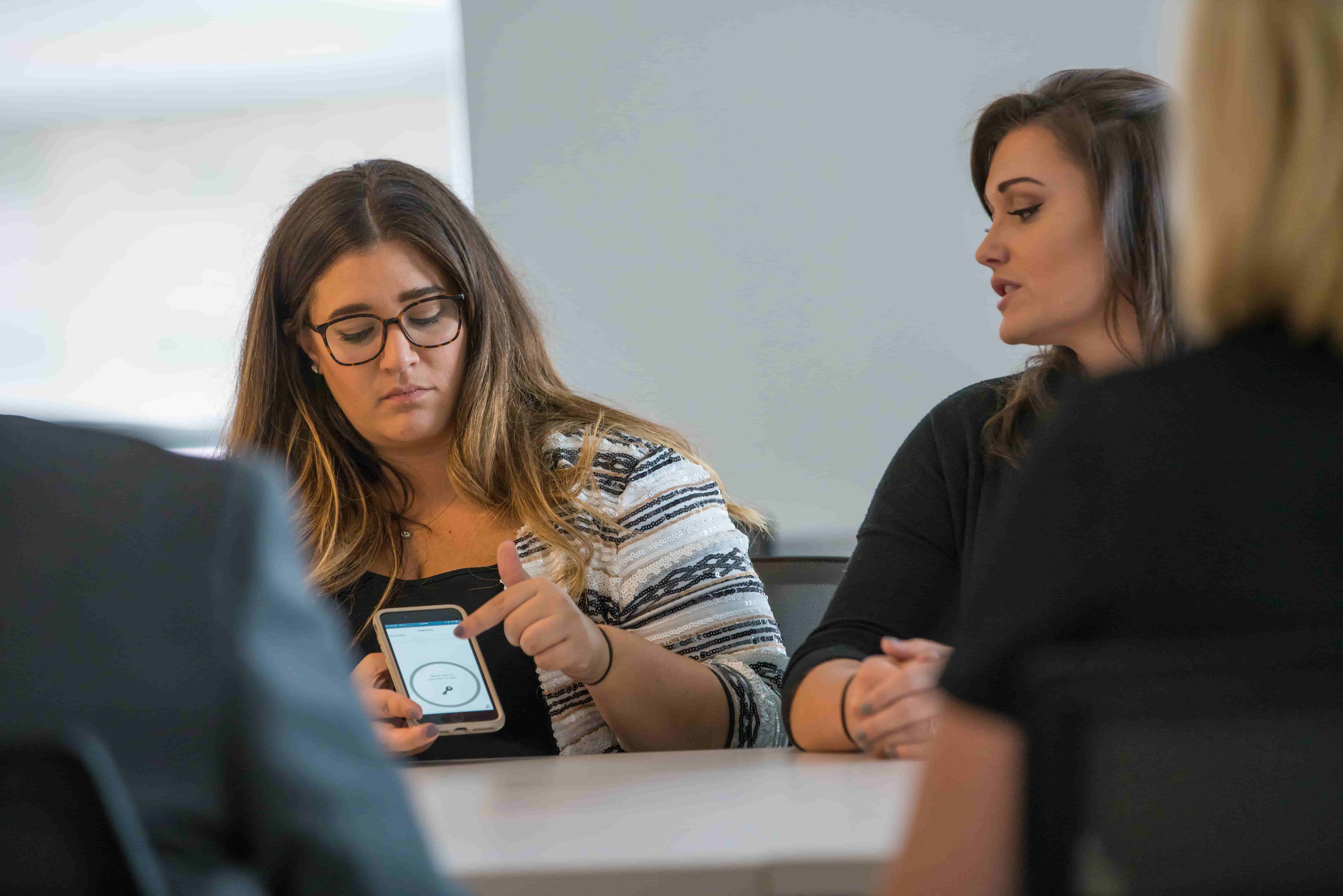
Hilton’s solution? “Because we’ve created a proprietary platform, your phone becomes your remote control, and you push the Netflix button and the last frame of “Sleepless in Seattle” you saw when you landed in the airplane will pop up exactly where you left off. So it becomes this really slick guest experience.” Wilson expects connected rooms to be installed in an estimated 100 Hilton properties by the end of this year.
Alexa Abbananto ’13, manager, full service brand sales for Hilton, says keeping their customers “comfortable and loyal” is the ultimate goal. “For road warriors who are on the road week after week, it’s all about those comforts you don’t realize you miss, the comforts of home. Just having those comforts and knowing that my routine is not messed up, even though I’m living out of a suitcase in a foreign place, all of those comforts are still there.”
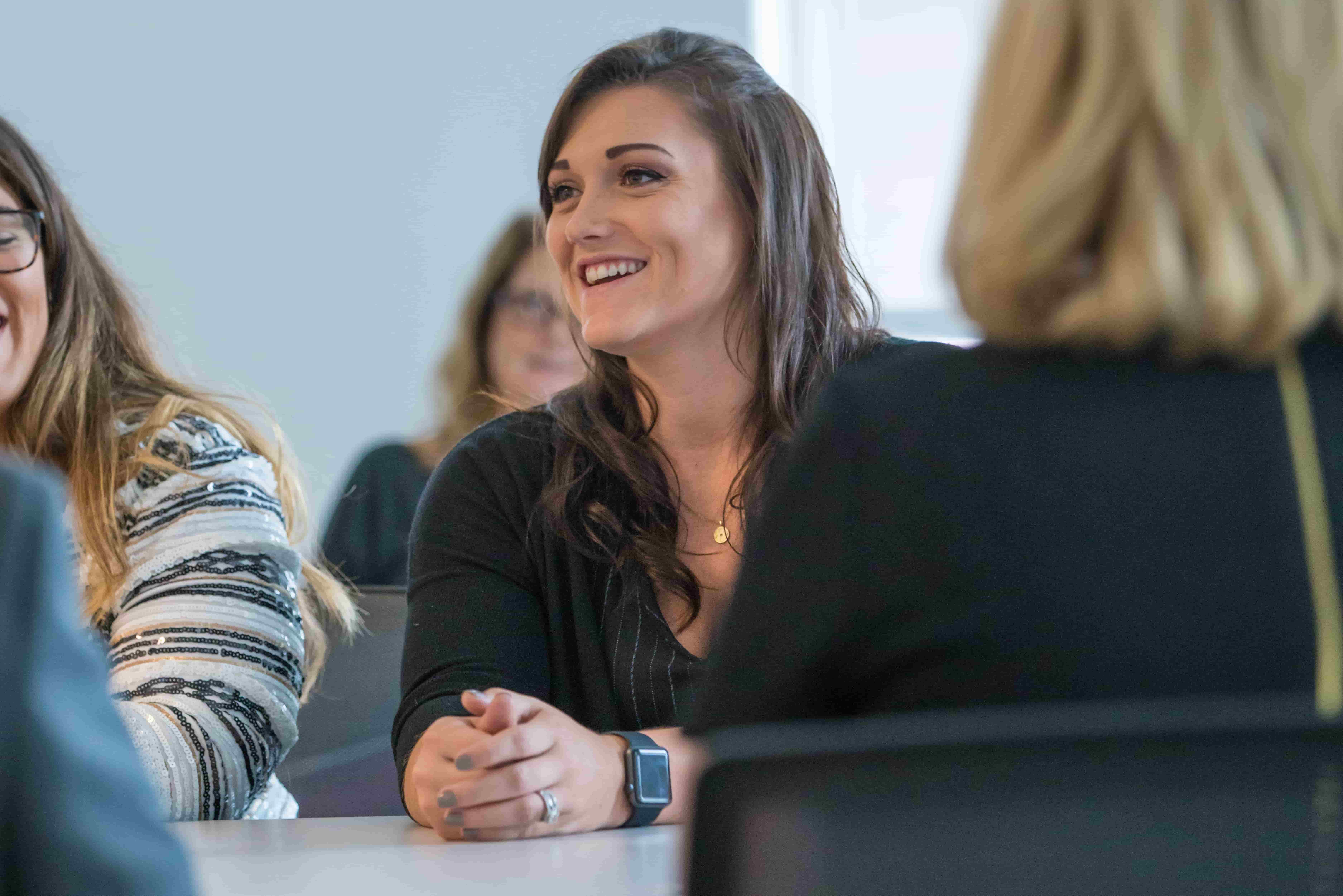
Despite how technology is changing the hospitality industry, Kuska appreciates the foundation of knowledge and skills she gained at JWU. “I have to give credit to my professors. Their experiences and stories that they’d share with us were really beneficial. You can take it to your job and say, oh, my professor had this, and this is how he handled it. JWU faculty have real-life experiences that they can draw from. It’s not just reading a textbook and saying, this is what we recommend. They can show you that this will work, and this is how I applied it and this is what worked for me. You can take their experience and see what works for you.”
“My education gave me a level of confidence that a lot of other people who went to another college did not have,” notes Kuska. “I went in and I knew how to read a profit and loss statement and how to do a cost benefit analysis and how things are put together, where other universities don’t cover that stuff. It gives you that edge, that advantage. It does make you feel more confident going into an executive meeting where you understand what they’re talking about.”
